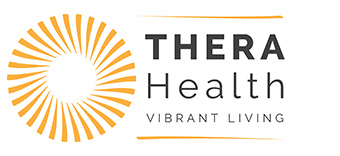24 March 2017
RE: Study Author Reports there is “No Need” for Omega-3 during Pregnancy
A study questioning the benefits of omega-3 supplements during pregnancy has been receiving some press recently. The articles report on a new study published in JAMA, which was initiated by the South Australian Health and Medical Research Institute, and includes a quote from one of the study’s co-authors that there is “no need” for omega-3 supplementation during pregnancy.
Meanwhile, organisations such as the Australian Heart Foundation and the World Health Organization (WHO) continue to recommend healthy individuals consume 300-500 mg omega-3 per day. This equates to approximately 2-3 serves of oily fish per week, or, a high quality fish oil supplement daily.
A Basic Element of Prenatal Care
Not only is the average Australian deficient in omega-3s,(1) a woman’s DHA levels decrease substantially during pregnancy, and will remain low for 9–12 months after delivery unless her diet is supplemented. This supplement is therefore even more crucial during this phase of life. To maintain optimal health in mothers, babies, and young children, international experts recommend a minimum of 300 mg of DHA per day.(2)
DHA (docosahexaenoic acid) is an omega-3 essential fatty acid that makes up approximately 20% of the fatty acids of the brain’s cerebral cortex. Though very important to the proper functioning of the human body, DHA is not produced by the body and must be obtained through the diet or supplementation.
Backed by Science
We challenge the headline that there is no need for DHA supplementation during pregnancy. To the contrary, there is a vast amount of scientific evidence that supports omega-3 supplementation during pregnancy, lactation and beyond. These findings include:
- DHA plays a significant role in the normal physical and mental development of the foetus.(3) DHA is transferred from the mother to the developing baby in the last trimester, supporting the foetal “nervous system growth spurt.”
- DHA provides mood and nerve support for pregnant and nursing mothers. One study found that women who consumed larger amounts of fish suffered half the rate of postpartum depression when compared to women who consumed little or no fish.(4)
- Research has shown that children of women who took cod liver oil during pregnancy and while lactating had higher IQs at age four than children whose mothers had taken a placebo.(5)
For more fascinating research on this topic we recommend the following studies.
- Effects of omega-3 supplementation during pregnancy and youth on neurodevelopment and cognition in childhood: a systematic review and meta-analysis
- The omega smart baby project: effect of maternal DHA on infant development
- DHA and human brain development: evidence that a dietary supply is needed for optimal development
- For an extensive library of research in this field visit omega-research.com
Conclusion
There are many factors that contribute to child development and prenatal care, and getting enough omega-3s is one of those factors.
Unfortunately, most of us do not eat enough of the right kinds of fatty fish, like salmon, mackerel and sardines, to achieve the recommended amount of omega-3s. Eating enough omega-3-rich fish, or taking supplements according to every life stage are healthy habits everyone should follow.
(1) Meyer, B. J. (2016). Australians are not meeting the recommended intakes for Omega-3 long chain polyunsaturated fatty acids: results of an analysis from the 2011-2012 National Nutrition and Physical Activity Survey. Nutrients, 8 (3), 111-1 – 111-12.
(2) Simopoulos AP, et al. Workshop Statement on the Essentiality of and Recommended Dietary Intakes for Omega-6 and Omega-3 Fatty Acids. Prostaglandins Leuko and Essential Fatty Acids 2000;63:119–121.
(3) Innis SM. Perinatal biochemistry and physiology of long-chain polyunsaturated fatty acids. J Pediatr 2003;143:S1–8.
(4) Hibbeln JR. Seafood consumption, the DHA content of mothers’ milk and prevalence rates of postpartum depression: a cross-national, ecological analysis. J Affect Disord 2002;69:15–29.
(5) Helland, et al. 2003, Ibid







Leave a Reply
Want to join the discussion?Feel free to contribute!